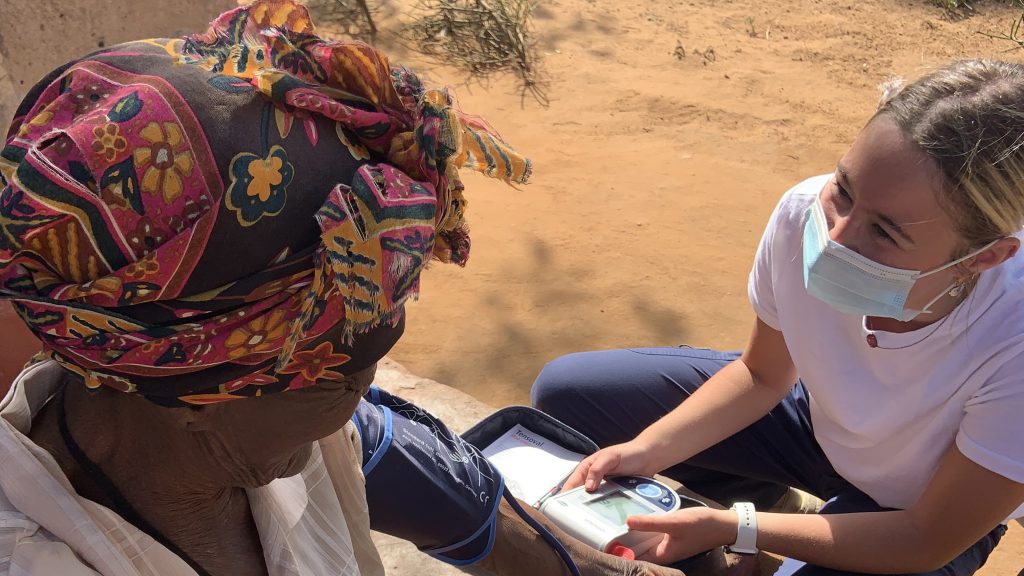This story originally appeared in the Fall 2022 Contact magazine.
For Kansas Wesleyan University senior Meredith Angelotti, the chance viewing of a TikTok video led to a life-changing volunteer experience.
In July, Angelotti spent two weeks working with African Impact, a nonprofit she learned about after seeing a creator on TikTok discuss her experience with the group.
As a biomedical chemistry major planning to become a physician assistant, Angelotti chose to sign on for the community and global health project taking place in Livingstone, Zambia.
She and her group focused primarily on home-based care. Each day, care coordinators took them to communities, and they provided basic check-ups, over-the-counter pain medications, wound care and clinic referrals to residents. Wound care was critical in these communities.
“A lot of people have wounds that are so bad that they’re recommended for amputation, but they won’t get their leg amputated because then they can’t work,” Angelotti said.
Many of the wounds began as small cuts that got infected. Without antibiotics readily available in local clinics, they worsened.
“The wound grows and grows and grows, and then I can see the bone in their foot,” she said. “So, we teach them how to clean it, how to dress it. Then we give them enough supplies for them to change their own wound until we come back.”
Part of educating those in Livingstone included teaching health-based courses. Angelotti taught classes about HIV and a menstrual health course for young women in the community.
“My cultural competence increased drastically,” she said. “I learned a lot about not discrediting something just because I’m not familiar with it. People have different sets of cultural ideals, and just because they’re different from mine doesn’t mean they’re wrong.”
For example, this cultural awareness clued Angelotti in on how diet, climate, water access and other factors can alter what one considers a healthy baseline for medical readings.
“Blood glucose and blood pressure ranges are a lot different there,” she said. “They’re a lot higher because they eat more sodium, and they don’t drink enough water. I learned so much that I can apply to medicine in the United States to provide better patient care.”
Her experiences in Zambia have also changed how she goes about her daily life back in the U.S.
“[In Livingstone], they don’t have a waste-management system, so they burn all their trash,” she said. “They’re very cautious about what they use and how much they use. Here, we just throw stuff away without even thinking about where it goes after.
“I’m so much more aware. Going to the grocery store, I don’t use plastic anymore. I bring my own bags. I used to do it before when I remembered, but now I’m, like, ‘I need to do this,’ because we take so much for granted.”
To fund her trip, Angelotti used GoFundMe and received additional help from the KWU Women’s Auxiliary group to supplement her two-week stint in Zambia.
Though she was excited to go, Angelotti was also intimidated by this new adventure.
“Traveling across the world alone was a big step for me,” Angelotti said. “Everyone told me, ‘You’re going to have the best time of your life; you’re going to leave a piece of your heart there,’ and I thought, ‘Oh yeah, whatever,’ and then I got there, and the third day I’m, like, ‘My whole heart is going to be left here.’
“I’m grateful that I went into it with an open mind and didn’t have set precursors about what I was going to see,” she said. “I’ve made friends that I know are going to be my friends for life.”
Story by Skylar Nelson


